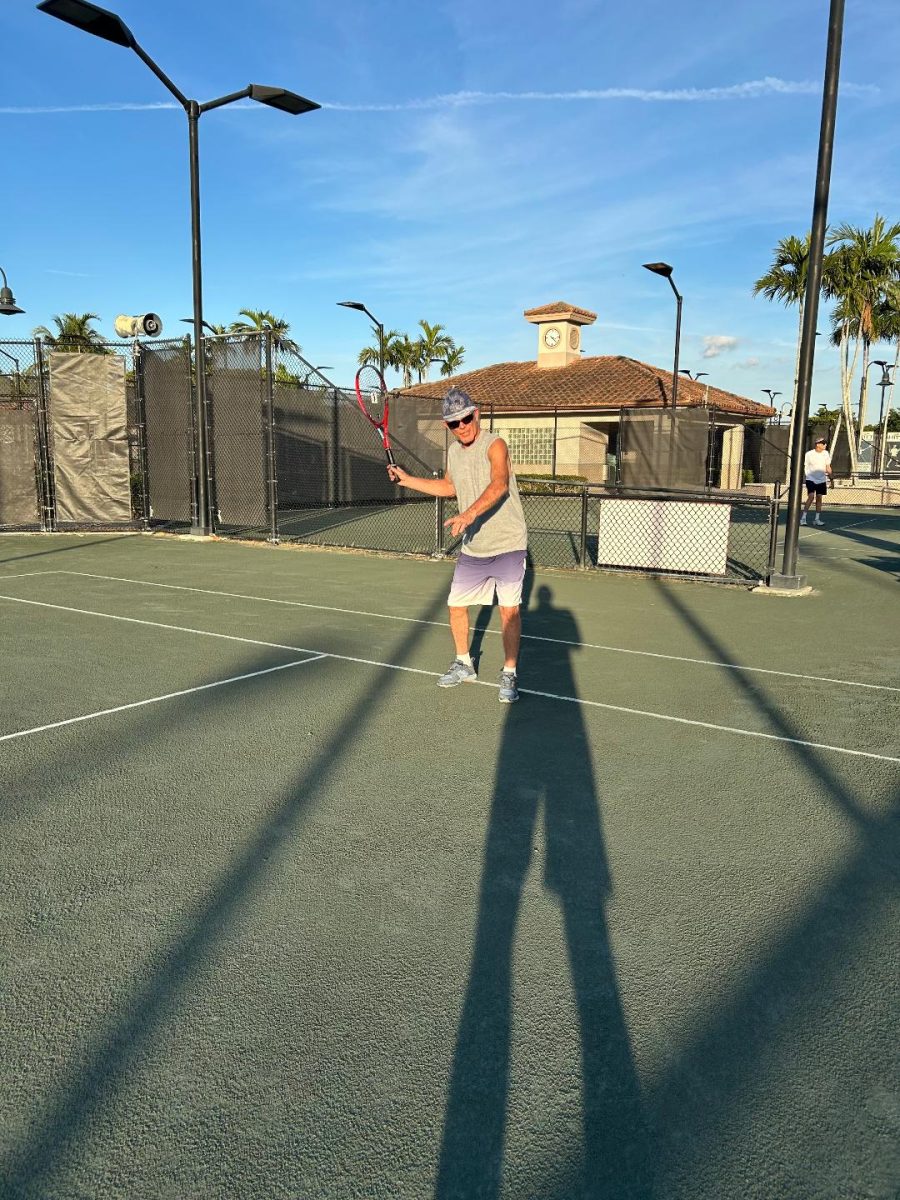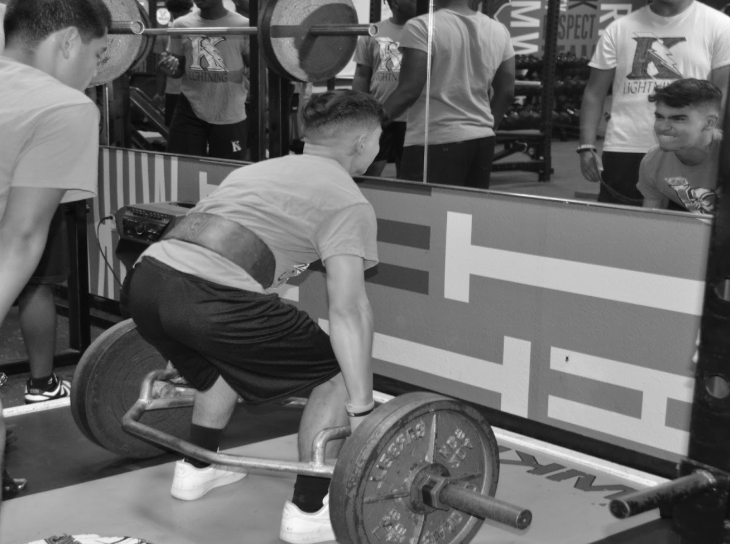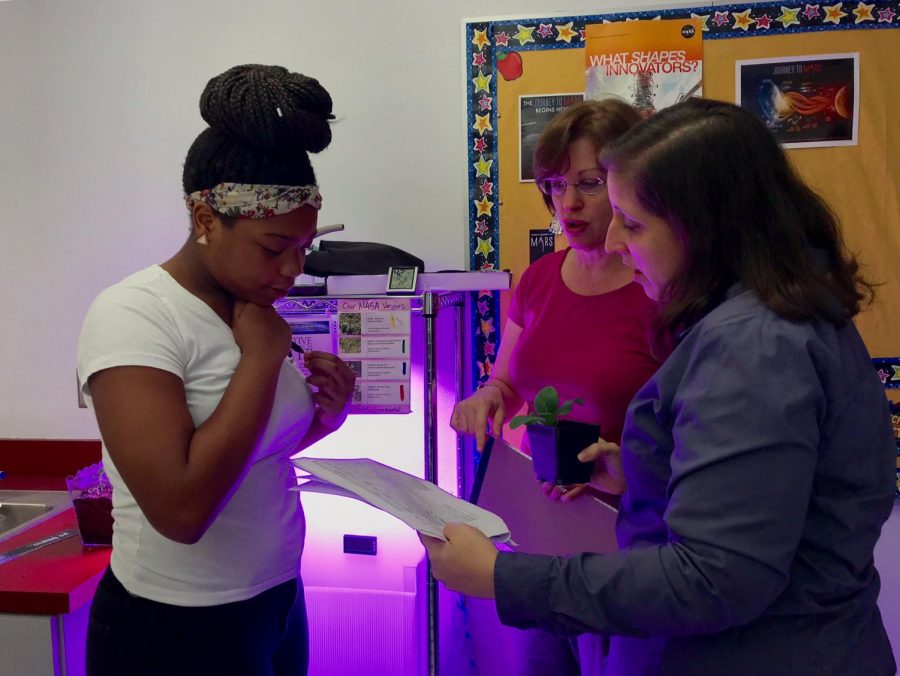Catherine Raymond visits Ms. Leonard’s environmental class to evaluate the NASA project
Student Aiyana Lespinasse (left), evaluator Catherine Raymond (middle), and science teacher Amy Leonard (right) speak about the growth of plant #7 which has grown over eight centimeters.
This month, environmental science teacher, Amy Leonard begins a project in her classroom that will help NASA astronauts grow plants in space.
Leonard simulates a garden inside her classroom which Fairchild provided for the project. More than 130 classes participate in the Fairchild challenge, that’s more than 125,000 students every year according to FairChild.
The challenge is used to determine which edible plants are suitable for growth in microgravity aboard the International Space Station.
Imagine not eating natural food for more than a year, only artificial, nothing truly real or fresh. But, completing this project gives NASA the data they need to determine which plans will be edible for astronauts to eat.
Less than a month since planting, many of the plants are already over fifteen centimeters in height. Catherine Raymond, an evaluator who improves results for nonprofit organizations, came on Thursday, October 24 to evaluate Krop’s progression. Raymond says that Leonard’s class is on track, according to the data they collected.
“The data correlates with the project criteria at this time,” Raymond said.
After the plants are ready for harvest, Leonard’s environmental classes will taste the plants that astronauts get to eat in the near future.
“I’m excited to represent Krop in such an important project,” says Leonard. “The students are extremely hands on and really contributing to helping improve the future.”






























